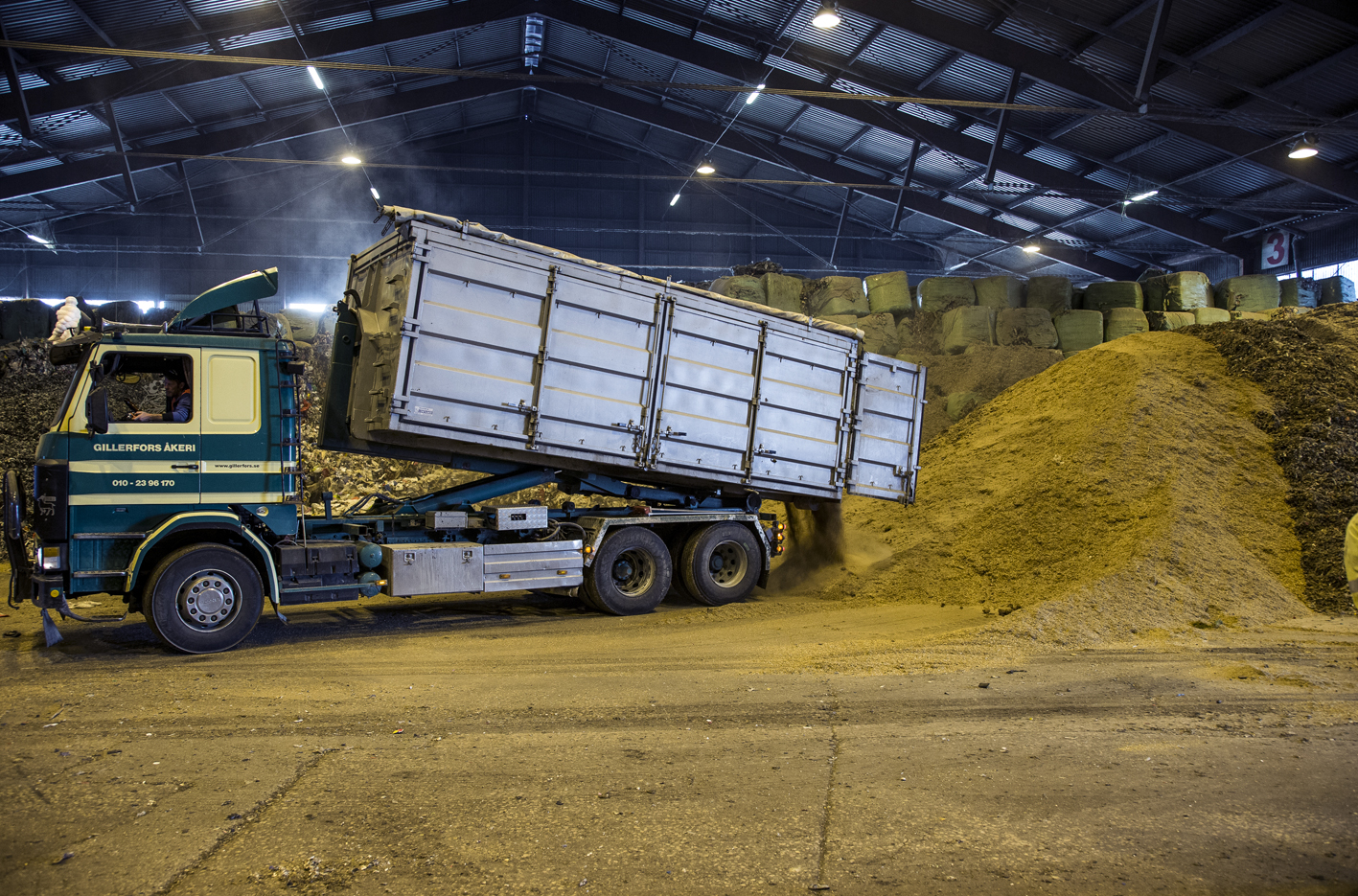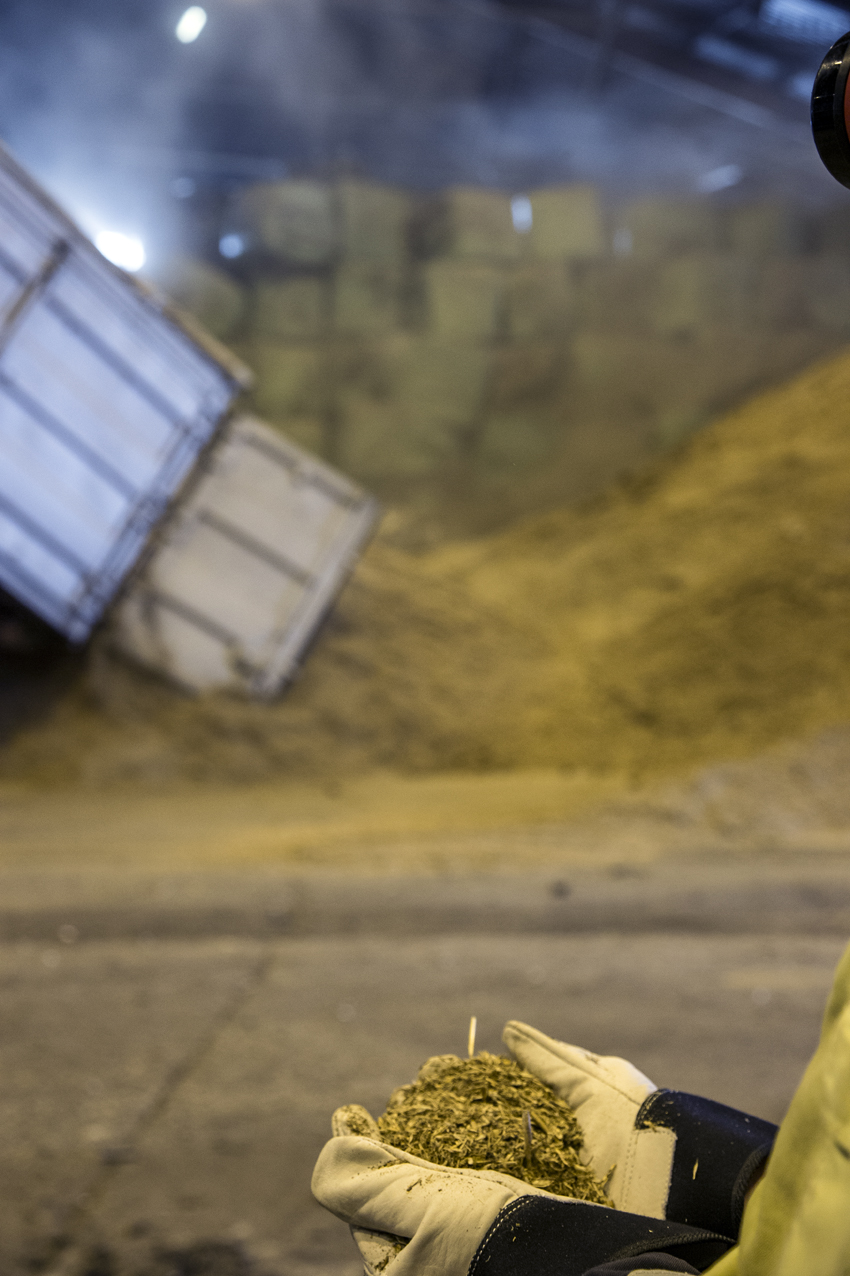Biofuel
Cement manufacture requires large quantities of energy, and we have been working for a long time to reduce the proportion of fossil fuels used. By using alternative fuels, waste is used as a resource, while emissions of carbon dioxide from fossil fuels are reduced.
Biofuel is a renewable fuel, produced by living organisms. This type of fuel causes no net addition of carbon dioxide to the atmosphere. Most alternative fuels used in cement manufacture are composed, to varying degrees, of renewable materials. Some alternative fuels are completely based on renewable materials, so they are classed as biofuels.
The challenge when using biofuels in cement production is that the fuel must contain those properties that are important for the cement process; examples include the chemical composition, the moisture content of the material and its calorific value, but also how the biofuel can be handled at the factory or its incineration properties.
HC Miljö supplies various types of biofuel. One example is described in more detail under the heading ‘Meat and bone meal’. Other examples of biofuels are dry and fine-particulate wood chips, waste material from cereal processing, and dried sewage sludge.


